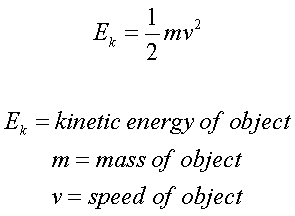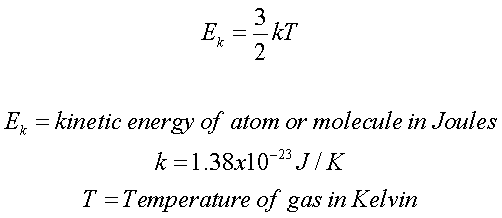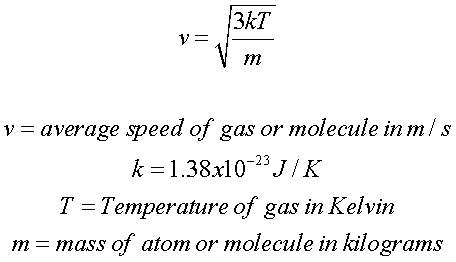Kinetic energy of a particular object is the energy
that is produced due to its motion and mass. The
following equation is used to determine the kinetic
energy of standard object like paper, cars or
planets.

When dealing with very small
particles - like atoms and molecules - a slight
variation of the equation must be considered:

When determining the energy of an
atom or
molecule in Astronomy, one can find the velocity of
that particle:

This is important for a few reasons, one of which
deals with
planetary atmospheres. Highly energetic
molecules can collide with one another to break them
down. Also, highly energetic molecules could exceed
the
planets escape velocity and evaporate into
space.
Back to Top
|

